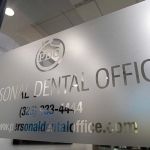Causes of Bad Breath and How to Cure It: Effective Solutions for Fresh Breath
- 1. Understanding the Causes of Bad Breath
- 2. Common Causes of Bad Breath
- 3. How to Cure Bad Breath: Effective Treatments
- 4. Natural Remedies for Bad Breath
- 5. When to See a Dentist for Bad Breath
1. Understanding the Causes of Bad Breath
Bad breath, also known as halitosis, is a common condition that affects many people. It can be embarrassing and often leads to self-consciousness. While occasional bad breath is normal, persistent bad breath may signal an underlying issue that needs attention. Understanding the causes of bad breath is essential to finding the right treatment to eliminate it.
Bad breath can arise from many different sources, ranging from poor oral hygiene to medical conditions. By addressing the root cause, you can successfully combat bad breath and enjoy a fresh, clean mouth.
2. Common Causes of Bad Breath
There are several reasons why you might experience bad breath. Some of the most common causes include:
- Poor Oral Hygiene: Not brushing or flossing your teeth properly can lead to food particles remaining in your mouth, which bacteria feed on. This results in foul odors.
- Dry Mouth: Saliva helps cleanse the mouth, but if your mouth is dry, food particles and bacteria may linger, causing bad breath. Dry mouth can be caused by medication, dehydration, or breathing through your mouth.
- Gum Disease: Periodontal disease can lead to bad breath due to the bacteria that accumulate in the gums and teeth.
- Food Choices: Certain foods, such as garlic and onions, can cause bad breath due to their strong odors. Additionally, sugary foods can promote bacterial growth that leads to bad breath.
- Medical Conditions: Bad breath can also be a symptom of medical conditions like diabetes, liver disease, or gastrointestinal problems like acid reflux.
By identifying the cause of your bad breath, you can take appropriate action to treat it effectively.
3. How to Cure Bad Breath: Effective Treatments
There are several treatments available to help cure bad breath, depending on its cause. Here are some effective solutions:
- Improved Oral Hygiene: The first step in curing bad breath is to improve your oral hygiene routine. Brush your teeth at least twice a day, floss daily, and use mouthwash to remove bacteria and food particles.
- Stay Hydrated: Drinking plenty of water helps keep your mouth moist and wash away food particles. It also prevents dry mouth, which can contribute to bad breath.
- Use Sugar-Free Gum or Mints: Chewing sugar-free gum or mints can stimulate saliva production and freshen your breath temporarily. Look for gums with xylitol, which helps fight bacteria.
- Treat Underlying Health Conditions: If bad breath is caused by a medical condition, addressing the condition can help eliminate bad breath. Consult with your doctor to treat any underlying health issues, such as diabetes or acid reflux.
These treatments, when combined with regular dental check-ups, can effectively help you manage and eliminate bad breath for good.
4. Natural Remedies for Bad Breath
If you're looking for natural remedies to cure bad breath, several home remedies can help freshen your breath without the use of chemicals or medications. Here are some effective natural options:
- Parsley: Chewing parsley can help neutralize odors in your mouth. It’s a natural breath freshener due to its chlorophyll content.
- Green Tea: Green tea has antibacterial properties that can help reduce the bacteria responsible for bad breath.
- Apple Cider Vinegar: A diluted mixture of apple cider vinegar and water can help balance the pH in your mouth and reduce bad breath.
- Tea Tree Oil: Adding a drop of tea tree oil to your toothpaste or using it in mouthwash can help kill bacteria and freshen your breath.
These remedies are easy to implement and can help support good oral health, while freshening your breath naturally.
5. When to See a Dentist for Bad Breath
If you’ve tried various treatments and natural remedies without success, or if your bad breath persists despite good oral hygiene, it may be time to consult a dentist. A dentist can help identify any underlying oral health issues, such as gum disease or cavities, that may be contributing to your bad breath. They can also provide professional cleaning and offer personalized advice for managing your oral health.
For a comprehensive evaluation of your oral health and bad breath treatment options, visit Dentistry Toothtruth for expert care and advice!







 Motto Clear Aligners0.0 (0 review)
Motto Clear Aligners0.0 (0 review) Personal Dental Office & Orthodontics4.0 (228 review)
Personal Dental Office & Orthodontics4.0 (228 review) Cerritos Dental Surgery5.0 (137 review)
Cerritos Dental Surgery5.0 (137 review) Dentists of South Pasadena4.0 (124 review)
Dentists of South Pasadena4.0 (124 review) Prosthodontics of Ho-Ho-Kus: Michael W. Klotz, DMD, MDentSc, FACP4.0 (27 review)
Prosthodontics of Ho-Ho-Kus: Michael W. Klotz, DMD, MDentSc, FACP4.0 (27 review) Western Dental & Orthodontics3.0 (312 review)
Western Dental & Orthodontics3.0 (312 review) The Importance of Oral Health Education During Pregnancy for a Healthy Pregnancy
The Importance of Oral Health Education During Pregnancy for a Healthy Pregnancy Best Tips for Brushing Your Teeth Properly for Healthy Gums: Essential Techniques for Oral Health
Best Tips for Brushing Your Teeth Properly for Healthy Gums: Essential Techniques for Oral Health Why Skipping Dental Checkups Can Lead to Bigger Oral Health Problems
Why Skipping Dental Checkups Can Lead to Bigger Oral Health Problems Advantages of Porcelain Dental Restorations
Advantages of Porcelain Dental Restorations How Can Diabetes Cause Tooth and Gum Problems? Preventing and Managing Oral Health Issues
How Can Diabetes Cause Tooth and Gum Problems? Preventing and Managing Oral Health Issues Healthy Habits for Promoting Good Oral Health and Hygiene: Tips for a Healthy Smile
Healthy Habits for Promoting Good Oral Health and Hygiene: Tips for a Healthy Smile